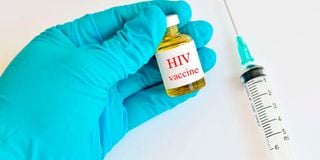The Importance of HIV testing, types and facts

HIV testing and treatment is an important prevention measure that protects patients from getting re-infected.
What you need to know:
- HIV testing is an integral part of medical care, not just because it can detect the presence of HIV in your body but also for its role in prevention.
- When you receive treatment early and remain on a regular schedule, you’ll protect yourself and others, as well as enjoy a healthy life.
HIV testing is an essential but often overlooked part of medical care. It is easy to think that once you have been tested for HIV, you do not need to worry about it anymore. Unfortunately, this could not be more wrong. You should get tested regularly, even if you are in a monogamous relationship with someone who has never had sex with anyone else.
HIV overview
HIV is a virus that attacks the immune system and can lead to AIDS. HIV is transmitted through contact with bodily fluids, such as blood, semen, and vaginal fluid. It can also be transmitted from mother to child during pregnancy, childbirth, or breastfeeding. Sharing piercing and injecting equipment, especially for drug addicts, is also an HIV risk factor. There is no cure for HIV, but available treatments can help improve the quality of life.
Symptoms
Early signs of HIV include
- Sore throat and fever
- Headache
- Fatigue
- Rashes
- Ulcers
Advanced symptoms
- Weight loss
- Chronic diarrhoea
- Depression
- Extreme fatigue
- Memory loss
- Coughing and pneumonia
Types of HIV tests
Nucleic acid test (NAT): This test is done from a blood sample and detects the presence of the virus and the viral load in patients. It is the fastest but also expensive. Therefore, it is not efficient for routine testing.
Antibody/antigen tests: This type of testing is done through blood samples. It detects antibodies created by the immune system to fight HIV infection and antigens released into the bloodstream when a person has HIV. This test takes 30 minutes or less to detect antibodies or antigens, and it is effective.
HIV antibody tests: This is the most common type of HIV test. It detects only the HIV antibodies in a person’s blood sample and oral fluids. This test is recommended for home testing kits. The results from a sample taken from oral fluids take around 20 minutes, while blood samples from finger pricks take thirty minutes or less.
Importance of testing
- It is easier to manage the situation when your immune system is not compromised. This means that treatment will be more effective since your immune system will not be compromised by HIV. In addition, regular tests allow for early detection of HIV so one can start treatment right away.
- Mild side effects from the treatment. When the virus is detected early, you will receive treatment right away. This will stop the virus from developing further, which can help to reduce side effects from the treatment and increase your quality of life.
- Receiving treatment prevents the spread of HIV infections. This is because when someone is on treatment, their viral load will be undetectable. This means that the virus cannot reproduce and spread to other people through sexual contact.
- HIV testing and treatment is an important prevention measure that protects patients from getting re-infected. One can contract new infections even if they already have HIV. Knowing your status helps you to protect yourself and the treatment boosts your immunity.
- Receiving treatment early generally allows for a healthy life, even with the immunity under attack. The counselling and caregiving team gives nutritional and healthy lifestyle guides that can help build up or strengthen their immunity.




